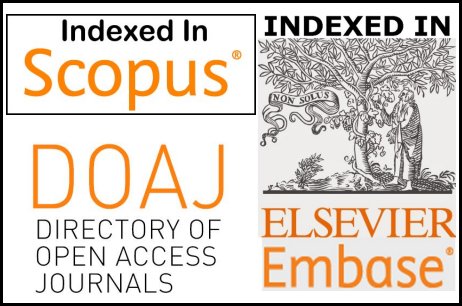The Microbiome, Gut-Brain-Axis, and Implications for Brain Health
DOI:
https://doi.org/10.15540/nr.2.4.158Keywords:
microbiome, gut-brain-axis, brain healthAbstract
As Antonio Damasio highlighted back in 1994, Descartes’ division of mind and body slowed the full realization of the connectedness of the brain and the body by centuries. The simple fact that homeostasis in the brain is fully interconnected with the body has eluded researchers and clinicians even after the connection was well established. Recent studies reporting the central role in dysfunction of mental systems as a result of inflammation in the gut and the autonomic nervous system (ANS) was yet one more reminder that the entire system is connected and interdependent. Central to this discovery and its application to mental function has been the growing field of study of the microbiome. This article is an attempt to situate those who are active in the variety of ways and means of treating the brain in the essential role that is likely being played by a vast community of bacteria living in the bowels of the human being and influencing all of the higher and most “sophisticated” aspects of human interchange and thought. It is the authors’ hope that this brief introduction will remind and inform researchers and clinicians that the organism is more interconnected and more complex than we have tended to think and that disorders of the mind are likely also often disorders of the gut.References
Bravo, J. A., Scaravage, E., Chew, M., Forsythe, P., Dinan, T. G., Bienenstock, J., & Cryan, J. F. (2010). The probiotic Lactobacillus reuteri induces constitutive changes in central GABA receptor expression. [Abstract] Program No. 795.17/FFF2, 2010 Neuroscience Meeting Planner. San Diego, CA: Society for Neuroscience.
Cámara, R. J. A., Ziegler, R., Begré, S., Schoepfer, A. M., & von Känel, R. (2009). The role of psychological stress in inflammatory bowel disease: quality assessment of methods of 18 prospective studies and suggestions for future research. Digestion, 80(2), 129–139. http://dx.doi.org/10.1159/000226087
Collins, S. M., & Bercik, P. (2009). The relationship between intestinal microbiota and the central nervous system in normal gastrointestinal function and disease.Gastroenterology, 136(6), 2003–2014. http://dx.doi.org/10.1053/j.gastro.2009.01.075
Collins, S. M., Surette, M., & Bercik, P. (2012).The interplay between the intestinal microbiota and the brain.Nature Reviews Microbiology, 10(11), 735–742. http://dx.doi.org/10.1038/nrmicro2876
Cryan, J. F., & O'Mahony, S. M. (2011). The microbiome-gut-brain axis: From bowel to behavior. Neurogastroenterology and Motility, 23(3), 187–192. http://dx.doi.org/10.1111/j.1365-2982.2010.01664.x
Damasio, A. R. (1994). Descartes’ error: emotion, reason, and the human brain (1st Ed.). New York, NY: Harper Collins.
Desbonnet, L., Garrett, L., Clarke, G., Bienenstock, J., & Dinan, T. G. (2008). The probiotic Bifidobacteriainfantis: An assessment of potential antidepressant properties in the rat. Journal of Psychiatric Research, 43(2), 164–174. http://dx.doi.org/10.1016/j.jpsychires.2008.03.009
Desbonnet, L., Garrett, L., Clarke, G., Kiely, B., Cryan, J. F., & Dinan, T. G. (2010). Effects of the probiotic Bifidobacteriuminfantis in the maternal separation model of depression.Neuroscience, 170(4), 1179–1188. http://dx.doi.org/10.1016/j.neuroscience.2010.08.005
Kleiman, S. C., Watson, H. J., Bulik-Sullivan, E. C., Huh, E. Y., Tarantino, L. M., Bulik, C. M., & Carroll, I. M. (2015). The intestinal microbiota in acute anorexia nervosa and during renourishment: relationship to depression, anxiety, and eating disorder psychopathology. Psychosomatic Medicine, 77(9), 969–981. http://dx.doi.org/10.1097/PSY.0000000000000247
Logan, A. C., & Katzman, M. (2005). Major depressive disorder: probiotics may be an adjuvant therapy. Medical Hypotheses, 64(3), 533–538. http://dx.doi.org/10.1016/j.mehy.2004.08.019
Mawdsley, J. E., & Rampton, D. S. (2005). Psychological stress in IBD: new insights into pathogenic and therapeutic implications. Gut, 54(10), 1481–1491. http://dx.doi.org/10.1136/gut.2005.064261
Mawdsley, J. E., & Rampton, D. S. (2006). The role of psychological stress in inflammatory bowel disease.Neuroimmunomodulation, 13(5–6), 327–336. http://dx.doi.org/10.1159/000104861
Messaoudi, M., Lalonde, R., Violle, N., Javelot, H., Desor, D., Nejdi, A., …Cazaubiel, J.-M. (2011). Assessment of psychotropic-like properties of a probiotic formulation (Lactobacillus helveticus R0052 and Bifidobacteriumlongum R0175) in rats and human subjects.British Journal of Nutrition, 105(5), 755–764. http://dx.doi.org/10.1017/S0007114510004319
Rao, A. V., Bested, A. C., Beaulne, T. M., Katzman, M. A., Iorio, C., Berardi, J. M., & Logan, A. C. (2009). A randomized, double-blind, placebo-controlled pilot study of a probiotic in emotional symptoms of chronic fatigue syndrome. Gut Pathogens,1, 6. http://dx.doi.org/10.1186/1757-4749-1-6
Sudo, N., Chida, Y., Aiba, Y., Sonoda, J., Oyama, N., Yu, X.-N., … Koga, Y. (2004). Postnatal microbial colonization programs the hypothalamic-pituitary-adrenal system for stress response in mice. The Journal of Physiology, 558(1), 263–275. http://dx.doi.org/10.1113/jphysiol.2004.063388
Tillisch, K., Labus, J., Kilpatrick, L., Jiang, Z., Stains, J., Ebrat, B., … Mayer, E. A.(2013). Consumption of fermented milk product with probiotic modulates brain activity. Gastroenterology, 144(7), 1394–1401.e4. http://dx.doi.org/10.1053/j.gastro.2013.02.043
Wu, J. C. (2012). Psychological co-morbidity in functional gastrointestinal disorders: Epidemiology, mechanisms and management. Journal of Neurogastroenterology and Motility, 18(1), 13–18. http://dx.doi.org/10.5056/jnm.2012.18.1.13
Zaura, E., Brandt, B. W., Teixeira de Mattos, M. J., Buijs, M. J., Caspers, M. P. M., Rashid, M.-U., … Crielaard, W. (2015). Same exposure but two radically different responses to antibiotics: Resilience of the salivary microbiome versus long-term microbial shifts in feces. mBio, 6(6), e01693–15. http://dx.doi.org/10.1128/mBio.01693-15
Downloads
Published
Issue
Section
License
Authors who publish with this journal agree to the following terms:- Authors retain copyright and grant the journal right of first publication with the work simultaneously licensed under a Creative Commons Attribution License (CC-BY) that allows others to share the work with an acknowledgement of the work's authorship and initial publication in this journal.
- Authors are able to enter into separate, additional contractual arrangements for the non-exclusive distribution of the journal's published version of the work (e.g., post it to an institutional repository or publish it in a book), with an acknowledgement of its initial publication in this journal.
- Authors are permitted and encouraged to post their work online (e.g., in institutional repositories or on their website) prior to and during the submission process, as it can lead to productive exchanges, as well as earlier and greater citation of published work (See The Effect of Open Access).










